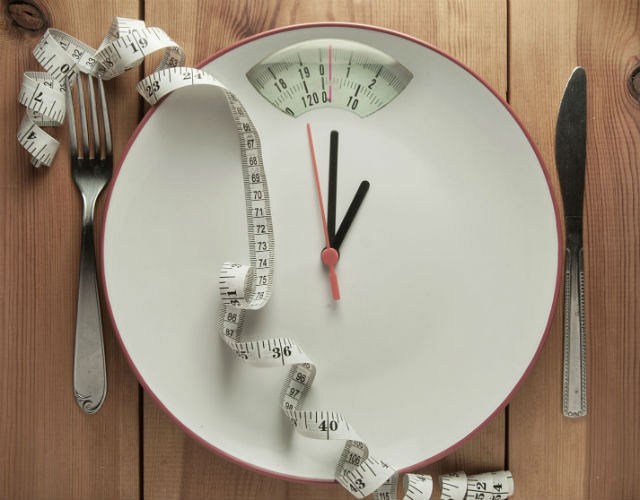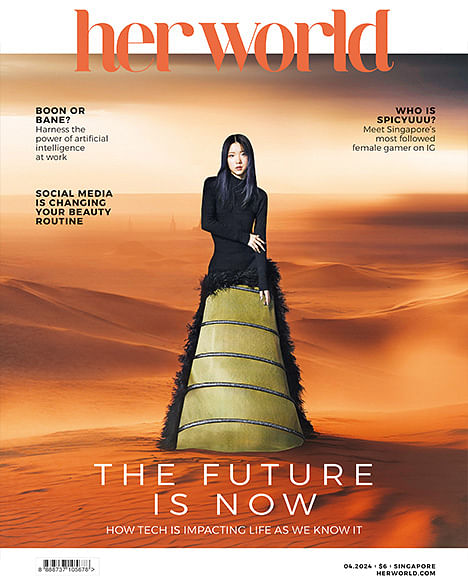
PHOTOGRAPH: pixelbliss, 123rf.com
1 I don’t eat gluten: The gluten-free diet
The gluten-free diet was designed for people with coeliac disease whose small intestines are hypersensitive to gluten, a protein found in wheat, rye or barley. Eating such foods can result in diarrhoea, stomach pain, nausea, anaemia and various other symptoms, depending on severity of the disease.
Those with gluten sensitivity, on the other hand, do not suffer intestinal damage from consuming gluten, but experience milder discomfort such as fatigue, headaches, bloating and stomach pain.
Advocates of the gluten-free diet say it can benefit everyone, not just those who have coeliac disease or gluten sensitivity. But Jaclyn Reutens, a dietitian at Aptima Nutrition and Sports Consultants, says claims that giving up gluten can boost your immunity, energy levels and concentration, should be taken with a pinch of salt.
“There are no proven benefits for those who do not have coeliac disease or gluten sensitivity,” she says.
Dangers:
By removing wheat-based foods from your diet, you lose out on a host of essential nutrients, such as fibre, zinc, B vitamins and potassium. This puts you at risk of nutrient deficiency, leading to anaemia, weakness, inflammation and decreased mental functioning.
Furthermore, a gluten-free diet is extremely restrictive. For a start, you have to give up common foods like bread, pasta and biscuits. You also have to avoid many products like soya sauce and salad dressings as these usually contain gluten. Even oats and granola bars, which may have been cross-contaminated with wheat during the production process, should be avoided. You lose weight on the diet because it limits your food choices.
“It is very hard to go completely gluten-free. Many people claim to follow it but they still have their ‘cheat’ moments,” says Jaclyn. You should also note that some gluten-free foods, such as snacks made from gluten-free flours or oats, are actually highly processed and may contain more calories than refined foods.
Instead of cutting out gluten from your diet completely, reduce your intake of refined carbohydrates like white bread and sweet desserts. Munch on gluten-free snacks such as dried fruit, celery with cream cheese, peanut butter on rice crackers or corn chips with salsa.
2 I don’t eat anything derived from animals: The vegan diet
Unlike vegetarians, who may include animal-derived products like dairy, eggs and even honey, vegans are very limited by their diet restrictions. Since they don’t eat meat or animal-derived foods, their only sources of protein are nuts, seeds, beans, peas and lentils. An obvious drawback of this diet is that vegans do not get sufficient protein.
Dangers:
One of the main effects of protein deficiency is that your body cannot repair and build new muscle tissue, so you will find yourself extremely tired after exercise. Any wounds and cuts also take longer to heal.
Read more: REVIEW: The best bottled cold brews to try in Singapore
Protein is essential for regulating hormones and not eating enough of it can cause insomnia, irregular periods in women or infrequent bowel movements.
Jaclyn says those who are pregnant and lactating should not attempt this diet – this is when you need more protein than usual. If a pregnant woman doesn’t get enough protein in her diet, she can cause developmental damage to the foetus. For women who are breastfeeding, a protein deficiency can stunt the baby’s growth and limit muscle development.
Veganism can also make you hungry all the time. When your body lacks protein, your blood sugar levels are unstable, which causes you to crave unhealthy sugary foods. Whether a vegan diet helps you lose weight depends on the overall amount you eat in a day. If you are cutting out fatty meals and dairy but eating lots of high-carb sweets and snacks, you might even gain weight.
3 I don’t eat “modern” food: The Paleo diet
With the meteoric rise in popularity of the caveman diet, many are convinced that going back to basics – that is, only eating foods that early humans consumed – helps you live a longer and healthier life.
Generally, those who subscribe to the Paleo diet avoid processed foods, bread, grains including rice, refined sugars, dairy, beans and legumes. But depending on who you ask, the diet may also prohibit salt and even caffeine. To replace these food groups, the Paleo diet advocates increasing the proportion of meat in your daily meals.
Jaclyn is adamantly against this idea. “No one should embark on such spartan diet restrictions. It is not practical in today’s world and can be harmful to your health.”
Dangers:
Cutting out grains and legumes can cause hypoglycaemia or low blood sugar, warns Jaclyn. This is also known as insulin shock.
Symptoms of hypoglycaemia include dizziness, fainting spells, cold sweats, chills nausea, heart palpitations, fatigue, numbness, blur vision and can result in coma and even death, in severe cases.
Besides hypoglycaemic attacks, low blood glucose can also cause irregular bowel movement and loose stools. In addition, going Paleo reduces your calcium intake since it excludes dairy products. This can lead to weaker bones, teeth, hair and nails.
Read more: 6 tips and natural products that will help you repel mosquitoes the organic way
In addition, the high content of red meat in this diet increases your risk of heart disease.
4 I don’t eat carbs: The no-carb diet
This diet is touted as an effective weight loss solution, backed by claims that carbs make you fat.
“This is one of the biggest weight loss misconceptions,” says Jaclyn. “The truth is that an excess of carbs makes you fat. In fact, too much of any food group will cause weight gain.”
On the contrary, carbohydrates are necessary to lose weight, she says. Carbs help your body to burn fat efficiently. When you deprive yourself of carbohydrates, your body enters starvation mode and conserves your body fat.
Besides, excluding carbohydrates and sugar from your diet is harder than most people think. Staple foods like rice and noodles, and sweet treats like cake, pastries and ice cream are clear violations, but there are also many hidden sources of carbohydrates such as milk, fruit, food fried in batter, gravies and soups.
Dangers:
Like the Paleo diet, people who cut out carbs can end up with hypoglycaemia. But out of all diets, Jaclyn believes that this is the least harmful, provided you pick a low-carb diet rather than eliminating the entire food group.
Include carbs of wholegrain varieties such as wholemeal bread or brown rice in your diet to give you energy. Keep full by eating lean protein such as chicken without the skin, or beef and pork with any visible fat removed.

